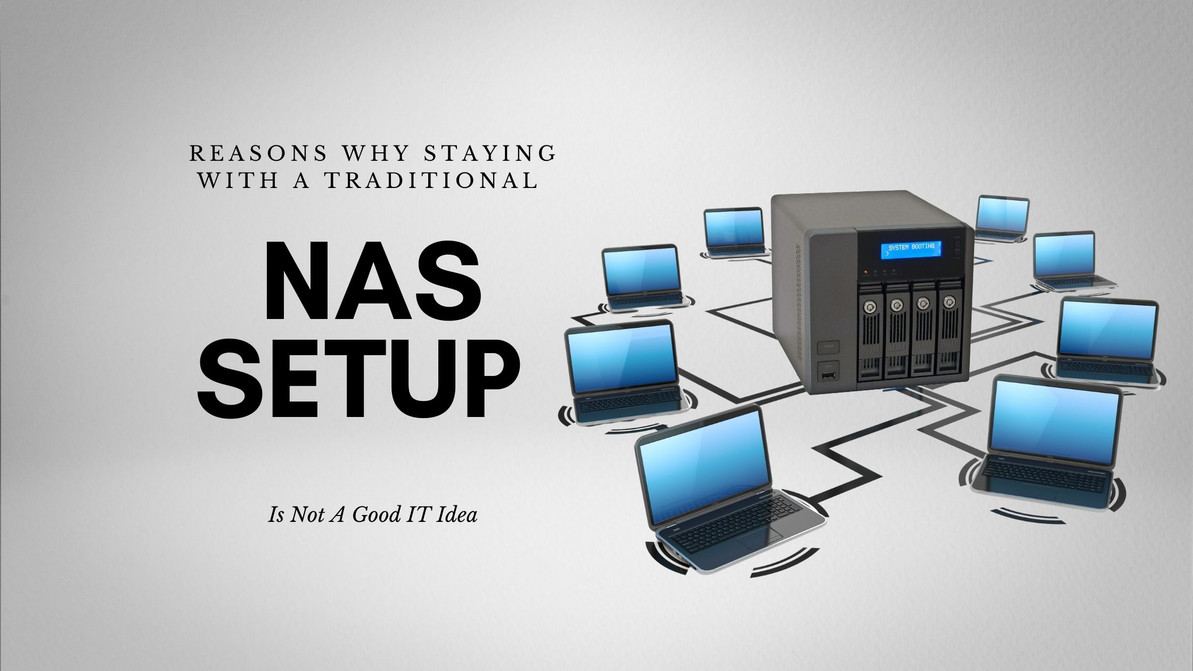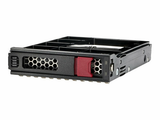Reasons Why Staying With a Traditional NAS Setup Is Not A Good IT Idea
Scale-out Network Attached Storage (Scale-out NAS) is gaining popularity in the business industry. If you still have a traditional NAS setup that only uses a single storage device, then it might be time for you to upgrade.
The traditional setup may allow you to configure it into a cluster, but keep in mind that your scalability will always be limited by the amount of CPU/memory and disk that your single NAS device can use.
Why is Traditional NAS Still a Good Option?
Upgrading and adding storage capacity to your traditional NAS will take up a considerable amount of costs and effort. Although it is designed to be able to accommodate multiple computer storage devices, it is still very much limited.
Since this is the age of technology, more businesses require easily scalable storage solutions-- which is what a scale-up NAS is-- exactly.
But do keep in mind that traditional NAS is still a decent option, it's just that scale-up NAS is better.
The traditional NAS setup is a type of storage infrastructure based on the scale-up concept, which allows you to add resources such as RAM and CPU to existing hardware.
These configurations consist of a single device that you can easily deploy. It will provide quick access to data, and expand capacity when necessary. It is still an amazing option for small to mid-sized businesses with robust storage needs.
However, if you are working on a bigger enterprise, keeping your traditional NAS might give you more problems than solutions.
Why is Scale-Out NAS a Better Option?
Scale-out NAS architecture is designed to be flexible and transparent. It is a great solution for businesses that has a scale-up dilemma that troubles traditional storage environments.
Scale-out NAS eliminates physical limitations through the feature that lets you upgrade both its capacity and performance. It uses a parallel file system that can scale files by the billions.
It means that this type of NAS setup can smoothly handle a massive amount of data with no issues. All these benefits without the need for expensive additions or data center space.
Another great quality of a scale-out NAS setup is its visibility which allows every connected node to see all the files stored across the cluster. This feature is advantageous because:
- You can easily obtain additional capacity by simply adding another node. You don't need to create additional storage pools.
- You can add capacity and performance without adding any management challenges thanks to dynamic resource allocations.
- Lastly, if one of the nodes fails, you can prevent downtime since the load can be distributed across the cluster.
All of these are possible thanks to the visibility that comes with the scale-out NAS setup.
Back in the day, growth means transferring all your data to bigger-capacity hardware. However, the scale-out NAS setup saves you from all the expenses with its flexibility and visibility.
The horizontal approach that scale-out NAS offers makes it possible for you to upgrade your storage system by multiple terabytes with minimal effort.
Final Take Away
Both traditional NAS and scale-up NAS have their advantages and disadvantages.
For instance, in traditional NAS environments, the system limits can result in server sprawl and management challenges-- which is quite a difficult situation to be in. However, it is a great and affordable option for small to medium businesses.
As for the scale-out storage, the challenge is with the licensing fees associated with incorporating proprietary hardware and software. Despite all its benefits, this part of the setup makes organizations take a step towards moving forward with deployment. However, its flexibility and visibility make it a great storage device solution for large businesses and enterprises.
Understanding which fits your business needs is a significant step in figuring out if one is really a bad idea over the other. Ultimately, the decision is still up to you.
Recent Posts
-
Forged for the Data Center: The HPE 960GB LFF Mixed Use SSD Powering ProLiant Gen9 and Gen10 Servers
HPE 960GB 3.5 Inch LFF Digitally Signed Firmware SATA 6Gbps Smart Carrier Converter Mixed Use SSD Ov …Dec 15th 2025 -
Where Legacy Bays Meet Lightning Speed: The HPE 960GB LFF SATA Mixed Use SSD Built for ProLiant Gen9 and Gen10 Servers
Power and Reliability in Enterprise Storage: HPE 960GB LFF SATA Mixed Use SSD for ProLiant Gen9 and …Dec 14th 2025 -
Solid Confidence in Every Byte: Powering ProLiant Gen10 and Gen10 Plus Servers with the HPE 960GB LFF Value SAS SSD
HPE 960GB 3.5-inch LFF Digitally Signed Firmware SAS-12Gbps Mixed Use Value SAS Multi Vendor SSD for …Dec 13th 2025




